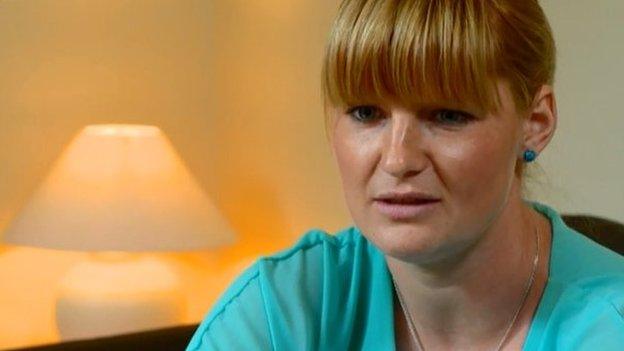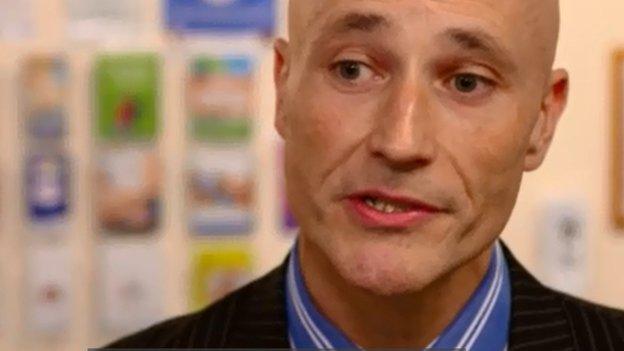Nottingham hospital translation costs triple
- Published

Polish speaker Karolina Klima said she had to communicate with a doctor via a laptop while giving birth to her daughter Maya at 23 weeks
The cost of translating for patients at NHS hospitals in Nottingham has nearly tripled over the past four years.
Figures obtained by BBC Inside Out found Nottingham University Hospitals NHS Trust spent nearly £500,000 on interpreting in 2013/14.
Giles Matsell, from the trust, said Polish was the most frequently translated language and the biggest spend was in community midwifery.
The trust runs Nottingham City Hospital and the Queen's Medical Centre (QMC).
'Major concern'
The hospitals' spend on translation in 2009/10 was £173,877.
Mr Matsell, the trust's head of quality and diversity, said: "It is a major concern for us now. We have seen an increase of over £100,000 in the past 12 months.
How migration has led to hospitals having to pay for translation and interpreting
"We're trying to develop a model where we're using staff as emergency volunteers where they're accredited with the language the patient requires, so they are there and available and obviously the cost is reduced for us."
Several hospitals told the BBC the impact of migrants who cannot speak English is a challenge for their staff, especially in acute situations.
The University Hospitals of Leicester NHS Trust spent £382,305 on interpreting in 2013/14 and it cost Derby Hospitals NHS Foundation Trust £450,920.
'Difficult for me'
Anneli Wynn-Davies, consultant neonatologist at Nottingham's Queen's Medical Centre, said: "It's very difficult and it's very frustrating.
"The biggest challenges are in acute situations where we need to be able to translate sometimes life and death situations with parents in an instantaneous way."

Mr Matsell said the hospitals were recruiting volunteer interpreters to help in emergency situations and to cut costs
Polish speaker Karolina Klima said she had to communicate with a doctor via translation software on a laptop while giving birth to her daughter Maya at 23 weeks at the QMC.
"He explained to me that I could probably give birth at any time but it would most likely be a still birth.
"I was so helpless. It was so hard and difficult for me," she said.
Her fears of a still birth were averted, however, and she has now been found a volunteer translator as she visits her daughter on the neonatal unit.
Government-funded English language courses can help the situation but there are waiting lists in the East Midlands region.
Lord Ahmad, communities minister, said: "My department provides over £6m to introductory language pilots that we're doing up and down the country.
"At a time of more scarce resources we ensure that funding is focussed on those people who are actively seeking jobs."
Inside Out is broadcast on Friday 6, March at 19:30 GMT on BBC One East Midlands and nationwide thereafter for 30 days on the iPlayer.